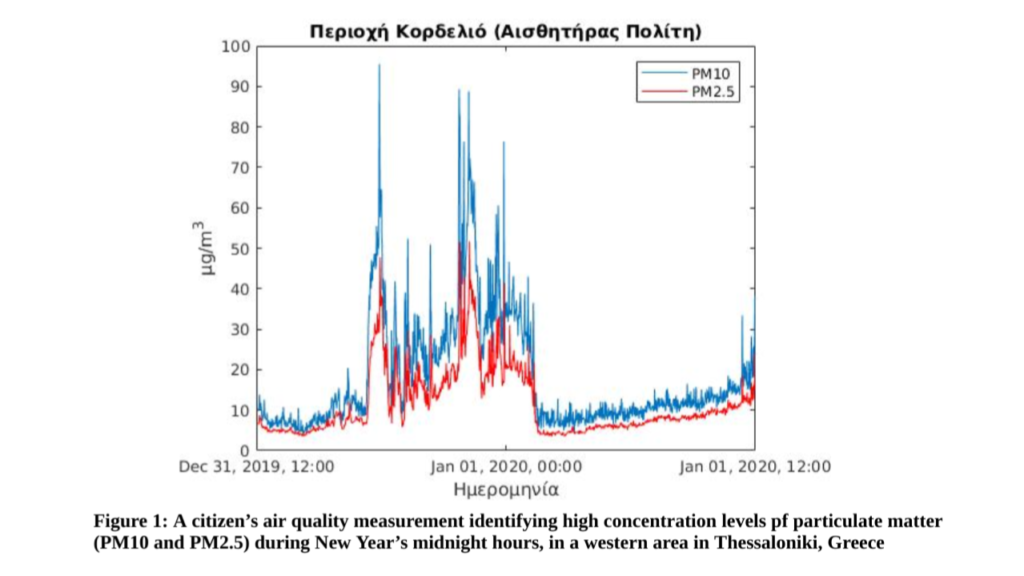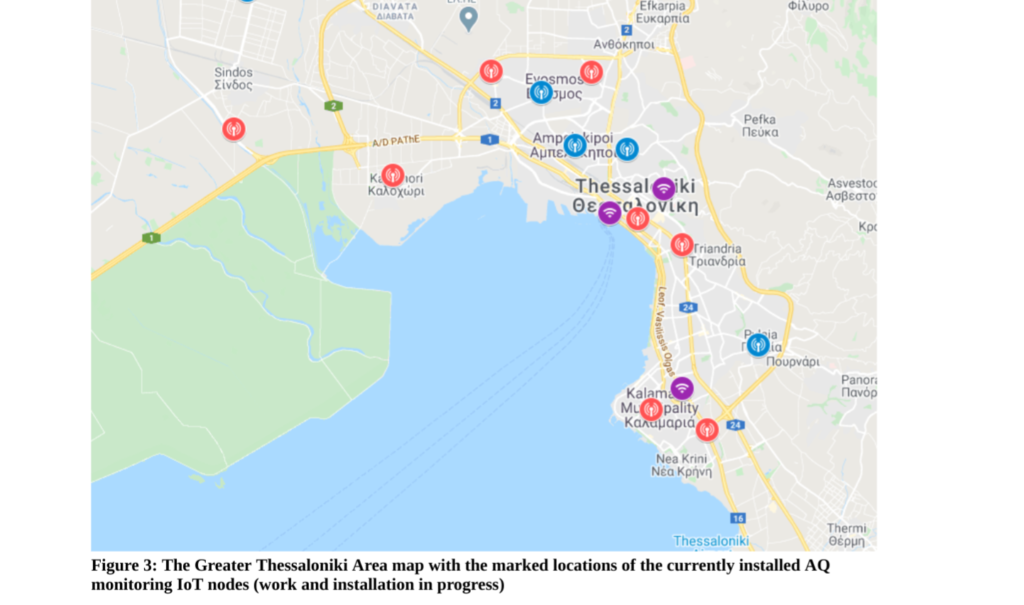URwatair: a citizen science project tackling air pollution and rainwater management problems in the urban area of Thessaloniki. Focusing on air pollution, we have been running a number of training and hands-on workshop with citizens. Participants are introduced to the basics of air quality science and are then provided with a low cost AQ sensor as well as guidelines of use, to access the quality of breathed air, based on their selection among four scenarios named: (a) “cooking in my kitchen”, (b) “my living room”, (c) “my neighborhood”, (d) “commuting in the city”. We then process the collected data with the aid of citizens who are also involved in drawing conclusions concerning activities that pollute or activities that can help them avoid polluting as well as avoid pollution. A number of interesting results have been drawn so far, among which the fact that one of the participating citizens noticed high concentration of PM10 (and PM2.5) particulate matter during the new year in his neighbourhood, and he asked if such data suggest an influence from new year’s eve fireworks (reference). The comparison of citizen observations with other available data, support this finding!

On Friday, 14 of Feb. 2020, we hosted the 3 citizens workshop, where in a DIY way, old as well as new participants had the opportunity to examine the measurements made in the frame of the previous workshops. They identified everyday utilities that resulted in the generation and/or in exposure to air pollution, like frying procedures in the kitchen and mobility patterns with out-of-vehicle air entering the cabin. On this basis, and in a collaborative way, they posted their analysis results on a voting and decision board, and made decision on their own on the causes of air pollution and possible ways to tackle it.
During the ECAD, we will be able to present to citizens best practices concerning the reduction of exposure to air pollution, as defined and described by citizen scientists, and will also provide them with a hands on session to relevant scenarios.
KASTOM: an Innovative system for air quality monitoring and forecasting. The KASTOM project combines a new estimation of natural and anthropogenic emissions with the WRF meteorological model and the CAMx photochemistry model to produce air pollution estimations of high quality. In parallel, it installs a new low cost network of air pollution monitoring nodes in Thessaloniki and Heraklion and it evaluates and verifies its measurements via field trials and laboratory procedures. KASTOM then fuses all available information via Computational Intelligence methods, thus producing high quality air pollution which are made available via an appropriate informatics platform and a set of software services.
We expect that more than 30 AQ monitoring nodes will be operational and available, providing new types of data and insight to Thessaloniki citizens by the ECAD. During that day, we will present AQ measurements from neighborhoods of Thessaloniki and discuss with inhabitants about local air pollution problems and abatement methods.

Field experiment on low cost AQ sensors: In the frame of our educational and research activities, we are running a field experiment where a number of approx. 10 different AQ sensor boxes are installed in the same location and monitor air pollution in a typical traffic –influenced location in the city center. The experiment as well as some of the sensors themselves will be made available so that during the ECAD citizens visiting our premises at the University will be able to learn more and to actually see and experiment with low cost AQ sensors.
Local organizer: Environmental Informatics Research Group, School of Mechanical Engineering, Aristotle University of Thessaloniki, Greece
Contact: (Kostas Karatzas), (Theodosis Kassandros). Additional emails, and a twitter account will be provided.
